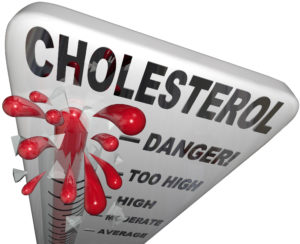Most people know that it’s important to maintain healthy levels of cholesterol, but not quite so many people understand why. Cholesterol is actually a vital substance within the body, and offers a range of benefits, including assisting with the production of vitamin D and helping the body to produce specific hormones.
However, too much cholesterol can spell bad news for your health. If your levels of cholesterol are high, your arteries can become clogged, increasing the risk of heart disease and heart attack.
If you’re worried about your cholesterol, here are some useful tips to help you keep it at a healthy level.
Useful Lifestyle Changes to Promote Healthy Levels of Cholesterol
- Choose the right foods. Limit your intake of saturated fats (often found in dairy products and red meat) and eat more monounsaturated fats, such as olive oil, nuts and leaner meat; as these types of food actively help to lower cholesterol. Likewise, eat wholegrain foods, plenty of fruit and vegetables, and foods rich in omega-3s; such as walnuts, oily fish and flaxseeds.
- Lower your weight. If you’re overweight, it’s far more likely that you’ll have higher cholesterol. Focus on shedding the excess pounds by substituting unhealthy foods in your diet for healthier ones. Aim to increase how much exercise you undertake each week. Even climbing the stairs to the office each day instead of taking the elevator can make a difference.
- Cut smoking. The health problems associated with smoking are already well publicized; and the fact that cigarettes raise cholesterol is yet another great reason to quit. Remember that there are support groups in your local area that can help you achieve this.
- Cut down your drinking. Whilst there’s nothing wrong with drinking in moderation, consuming a significant amount of alcohol on a regular basis increases your risk of developing heart disease. Aim to limit your intake to one or two drinks a day at the most.
If you’re still concerned…
If you’re still worried about your cholesterol, make sure you book an appointment with your doctor or local cardiovascular specialist, who will be able to provide you with a thorough health check and offer alternative ways in which you can keep your cholesterol at a healthy level.
 High cholesterol, also known as hypercholesterolemia, is caused by an excessive buildup of the cholesterol molecule in the bloodstream. While cholesterol is beneficial in healthy amounts and aids with cell construction, excess cholesterol can build up and impair blood flow, increasing the risk of a heart attack or stroke.
High cholesterol, also known as hypercholesterolemia, is caused by an excessive buildup of the cholesterol molecule in the bloodstream. While cholesterol is beneficial in healthy amounts and aids with cell construction, excess cholesterol can build up and impair blood flow, increasing the risk of a heart attack or stroke.

 Your cholesterol level probably isn’t something you think twice about until you become an adult, but it’s a critically important component of your overall health and can indicate your risk of serious illnesses like heart disease and heart attack. If you have your cholesterol checked only to find that it is considerably higher than it should be, you will need to begin cholesterol management with the help of your doctor. Here are some of the basics that can help you return your cholesterol to a safe level.
Your cholesterol level probably isn’t something you think twice about until you become an adult, but it’s a critically important component of your overall health and can indicate your risk of serious illnesses like heart disease and heart attack. If you have your cholesterol checked only to find that it is considerably higher than it should be, you will need to begin cholesterol management with the help of your doctor. Here are some of the basics that can help you return your cholesterol to a safe level.